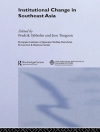Offering clear, easy-to-understand guidance on designing qualitative research, this fully updated
Seventh Edition of Marshall and Rossman’s bestselling text retains the useful examples, tools, and vignettes that makes it such an outstanding resource. The book takes students from selecting a research genre through building a conceptual framework, data collection and interpretation, and arguing the merits of the proposal. Now featuring a new co-author, Gerardo L. Blanco, this edition includes more on the history and new emerging genres of qualitative inquiry, as well as a more sustained and deeper focus on social media and other digital applications in conducting qualitative research. New application activities provide opportunities for students to try out ideas, while timely vignettes illustrate the methodological challenges posed by the intellectual, ethical, political, and technological advances affecting society.
Power Points to accompany this text are available on an instructor site.
Tabla de materias
List of Tables
List of Figures
List of Vignettes
List of Application Activities
Preface to the Seventh Edition
About the Authors
Chapter 1. Introduction
Considerations
The Challenges
Developing an Argument
Overview of the Book
Opportunities and Challenges
Further Reading
Key Concepts
Chapter 2. Qualitative Research Genres
Canonical Genres
Critical Genres
Opportunities and Challenges
Further Reading
Key Concepts
Chapter 3. Credibility, Trustworthiness, and Ethics
Trustworthiness
Bringing Ethics, Relationships, and Identity Into Trustworthiness
Researcher Identity, Voice, and Relationships
Field Notes
Ethics and Institutional Reviews
Opportunities and Challenges
Further Reading
Key Concepts
Chapter 4. The What of the Study: Building the Conceptual Framework
Sections of the Proposal
Building the Conceptual Framework: Topic, Purpose, and Significance
Literature Review and Critique of Related Research
Opportunities and Challenges
Further Reading
Key Concepts
Chapter 5. The How of the Study: Building the Research Design
Meeting the Challenge
Justifying Qualitative Research
The Qualitative Genre and Overall Approach
The Setting, Site, Population, or Phenomenon
Within Sites: Sampling People, Actions, Events, and Processes
Personal Biography, Positionality, Ongoing Relationships, and Reciprocity
Time and Resources: Making Some Tough Choices
Opportunities and Challenges
Further Reading
Key Concepts
Chapter 6. Basic Data Collection Methods
Observation
In-Depth Interviewing
Life Histories and Narrative Inquiry
Opportunities and Challenges
Further Reading
Key Concepts
Chapter 7. Specialized and Focused Data Collection Methods
Collecting Content and Text From Documents and Other Media
Using the Internet and Digital Applications
Multimodal Approaches
Interaction Analysis
Hypotheticals
Dilemma Analysis
Games and Simulations
Combining Data Collection Methods
Opportunities and Challenges
Further Reading
Key Concepts
Chapter 8. Managing, Analyzing, and Interpreting Data
Recording, Managing, Transcribing, and Translating Data
Data Analysis
Generic Data Analysis Strategies
Analytic Procedures
Challenges and Opportunities
Further Reading
Key Concepts
Chapter 9. Arguing the Merits of Your Proposal and Moving Forward
Criteria of Soundness
The Essential Qualitativeness and Value of the Research
Demonstrating Precedents
Envisioning the Final Report, the Dissertation, the Book, or Something Else
Opportunities and Challenges
A Final Word
Further Reading
Key Concepts
References
Index
Sobre el autor
Gerardo L. Blanco is Associate Professor of Educational Leadership and Higher Education, and Academic Director of the Center for International Higher Education at Boston College’s Lynch School of Education and Human Development. He received his Ed.D. in Educational Policy and Leadership, with a concentration in Higher Education, from the University of Massachusetts Amherst. Prior to joining Boston College, he served on the faculty of the University of Massachusetts Boston and at the University of Connecticut. His research explores the intersections of quality and internationalization in higher education and is motivated by a commitment to global social justice and a deep curiosity for the ways higher education institutions define, improve and communicate their value to different stakeholder groups. The author of over 30 journal articles to date, his research has been published in Higher Education, Studies in Higher Education, the Comparative Education Review, and the Review of Higher Education. In 2017, he received the “Best Research Article Award” from the Comparative & International Education Society’s Higher Education SIG. In 2014 and 2020, his work received honorable mentions from the same organization. Blanco is a Fulbright Specialist; his teaching, research and consulting have taken place in 15 countries and 5 continents. He has been a visiting faculty member at Shaanxi Normal University (China), visiting expert at the International Centre for Higher Education Research (INCHER) at the University of Kassel (Germany) and teaching fellow at the John Paul II Catholic University of Lublin (Poland).












